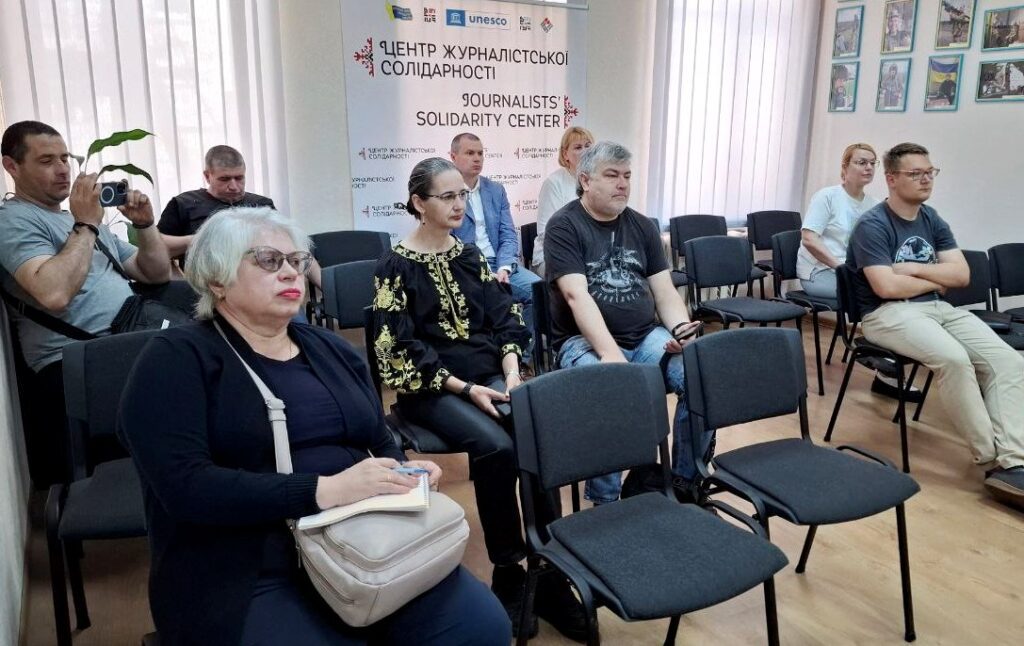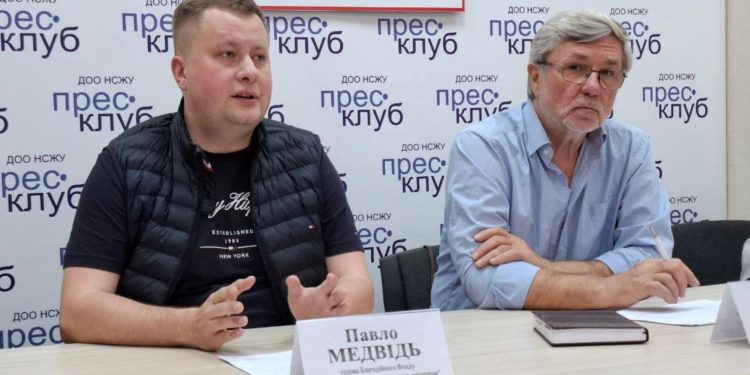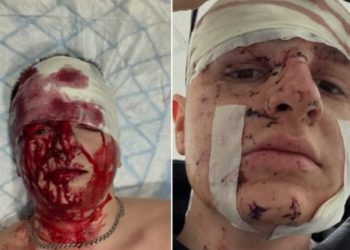What trends, contradictions, and regional differences in IDP and veteran policies have been identified by experts? What are the successful initiatives and practices in different regions? How can information support be improved? Pavlo Medvid, the head of the Charitable Foundation Center for Assistance to IDPs and Veterans, and Vladyslav Romanov, an analyst at the Foundation, spoke about these and other issues during the press conference called Problems of IDPs and Veterans in the Information Space of Front-line Regions: Trends, Achievements, Failures. The event, during which the results of monitoring the coverage of internally displaced persons and veterans in front-line regions of Ukraine were presented, was held at the Dnipro Journalists’ Solidarity Center (JSC) of the National Union of Journalists of Ukraine (NUJU) and was organized by the Charitable Foundation Center for Assistance to IDPs and Veterans.
Since the beginning of 2025, the Charitable Foundation has been conducting weekly monitoring of information messages published by central and local executive bodies, non-governmental organizations, as well as media in eight front-line regions of Ukraine, namely Dnipropetrovsk, Kharkiv, Luhansk, Donetsk, Zaporizhzhia, Kherson, Mykolayiv, and Odesa Regions. The monitoring base includes almost 300 sources, from which 90 to 130 materials are analyzed every week.
“The main problem is communication,” Vladyslav Romanov noted. “We need to produce a certain product. But this is not about ready-made solutions, which are still the prerogative of the authorities. This is a concept, variations and proposals with discussions of the positions of interested parties at a professional level.”
During the event, the participants considered a number of problems common in the information space of the front-line regions of Ukraine. In particular, they drew attention to the formation of materials through the prism of promises, which leads to the creation of the illusion of active activity. They also discussed the information vacuum around the topics of IDPs and veterans caused by the insufficient amount of both information and analytical materials. The lack of information, at the same time, creates a field for the spread of Russian narratives through the distribution of insinuations and propaganda, which is also complicated by the inability and/or unwillingness of the audience to consume news content.

“Many people have completely lost faith in everything; they do not read the news at all. Suppose a person follows the news in at least one source of information. In that case, that is already good,” commented the conference participant/displaced journalist from the Kherson Region, Viyacheslav Husakov.
Together with the experts, the meeting participants also discussed recommendations for improving information support for IDPs and veterans. Among the proposals are increasing media literacy, creating specialized information platforms, more actively involving IDPs and veterans themselves in creating content, etc.
As earlier reported, the Dnipro JSC of the NUJU is not only a place of support for the media community, but also a co-working space open for holding socially important events.
The network of Journalists’ Solidarity Centers is an initiative of the National Union of Journalists of Ukraine, implemented in collaboration with the International and European Federations of Journalists and UNESCO and with the support of the People of Japan. Our primary goal is to assist media professionals working in Ukraine during the war. The Centers are active in Kyiv, Kharkiv, Zaporizhzhia, Dnipro, Lviv, and Ivano-Frankivsk. The project is part of UNESCO’s broader efforts to support the Safety of Journalists and Freedom of Expression in Ukraine.
Call the Dnipro JSC at 050 919 8479 (Nataliya Nazarova, the coordinator of the Dnipro JSC). The Center’s address is 8 Starokozatska Street.
Liana Okhrymenko
Dnipro JSC information service

 THE NATIONAL UNION OF
JOURNALISTS OF UKRAINE
THE NATIONAL UNION OF
JOURNALISTS OF UKRAINE
















Discussion about this post